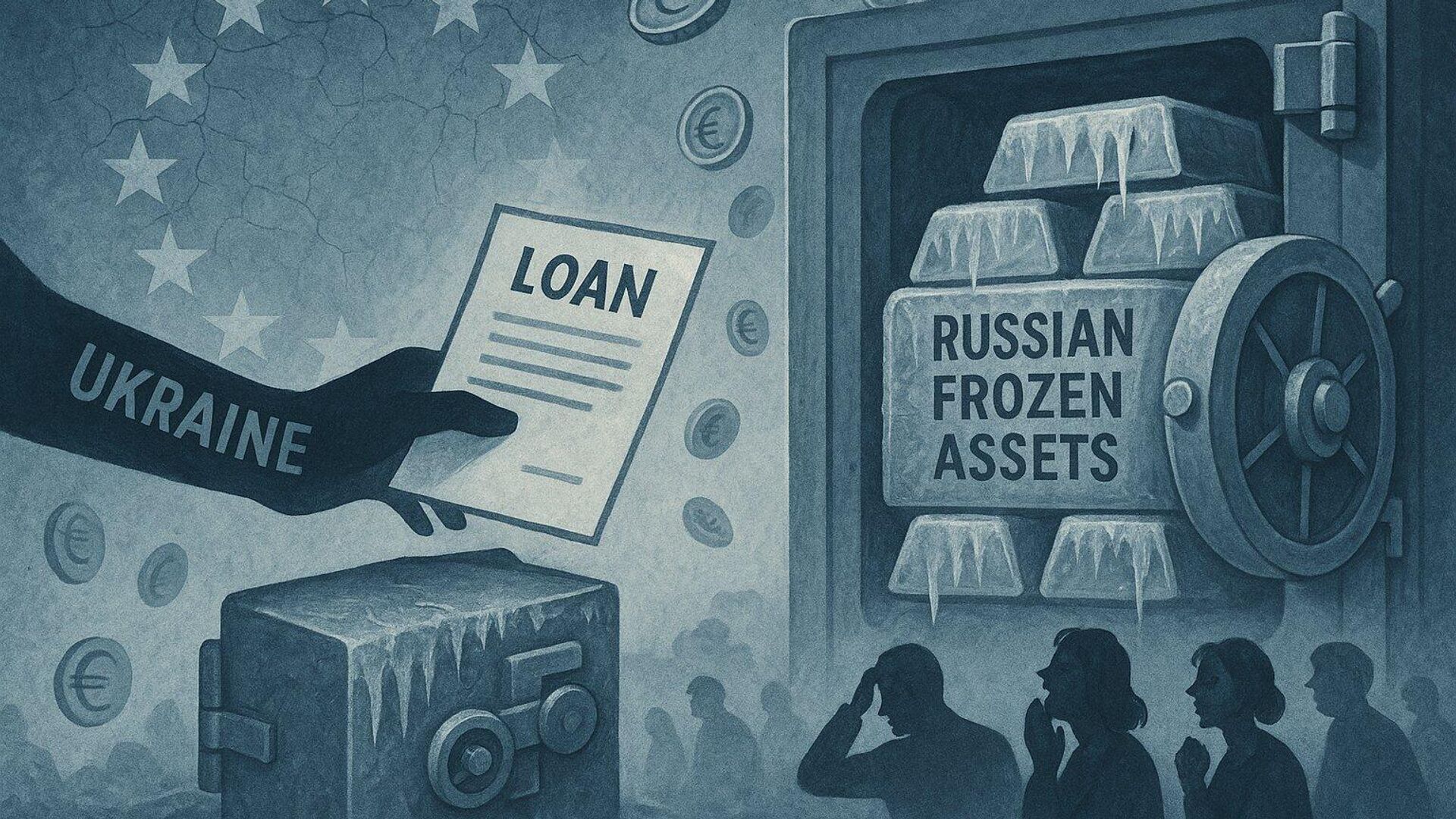Loan to Ukraine From Russian Frozen Assets to Undermine Confidence in Europe, UK Scholar Says
07:51 02.10.2025 (Updated: 08:49 02.10.2025)

© SORA
Subscribe
SOCHI, Russia (Sputnik) - The Russian Foreign Ministry has repeatedly condemned the freezing of Russia's central bank money in Europe as theft. Moscow could respond by withholding assets held in Russia by Western countries, Sergey Lavrov said.
Using frozen Russian assets to fund a “reparations loan” for Ukraine risks undermining the confidence of foreign investors from the Global South in Europe—and the euro as a reserve currency, Richard Sakwa, a UK political scientist and professor emeritus of political science at Kent University, told Sputnik on the sidelines of the Valdai Discussion Club.
On Wednesday, European foreign policy chief Kaja Kallas said that there was no consensus among EU leaders on granting Ukraine a "reparations loan" backed up by frozen Russian central bank assets, rather than by revenues generated from them.
He added that von der Leyen's plan to use Russian assets is a "legal attempt to do an illegal action." Sakwa noted that large Western business assets remain in Russia, and their owners cannot withdraw them from the country.
The expert noted that a number of Western business representatives had tried to maintain normal relations with Russia, and expressed the opinion that confiscating their assets in response to the EU's actions would be a mistake.
After the start of Russia's special military operation in Ukraine in 2022, the European Union and the G7 froze almost half of Russian foreign currency reserves, totaling some 300 billion euros. About 200 billion euros is held in European accounts, mainly by Belgium's Euroclear, one of the world's largest clearing houses.
On Wednesday, European foreign policy chief Kaja Kallas said that there was no consensus among EU leaders on granting Ukraine a "reparations loan" backed up by frozen Russian central bank assets, rather than by revenues generated from them.
He added that von der Leyen's plan to use Russian assets is a "legal attempt to do an illegal action." Sakwa noted that large Western business assets remain in Russia, and their owners cannot withdraw them from the country.
The expert noted that a number of Western business representatives had tried to maintain normal relations with Russia, and expressed the opinion that confiscating their assets in response to the EU's actions would be a mistake.
After the start of Russia's special military operation in Ukraine in 2022, the European Union and the G7 froze almost half of Russian foreign currency reserves, totaling some 300 billion euros. About 200 billion euros is held in European accounts, mainly by Belgium's Euroclear, one of the world's largest clearing houses.
